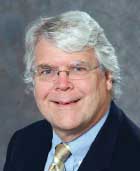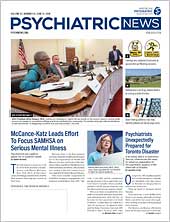“Dear Richard and Yvonne,
I feel I have no choice but to end my life and am doing so in the hope that you will take this letter and employ it in the way that I suggest below. Please use what has happened to me as an example to help prevent the same tragedy happening to the patients of elderly physicians who have continued practicing past the time when it was safe for them to do so.”
So starts the suicide note written by a hard-working, proud physician who has realized too late that his clinical practice has become impaired because of his mild cognitive impairment, leading to some disastrous outcomes for his patients.
It is acknowledged widely that an unwell or potentially impaired physician needs help, and that without this help, he or she may be less able to practice safely and effectively. So physician health and well-being, whether it concerns burnout, depression, suicide, anxiety, substance use, or cognitive impairment, really is a patient safety issue.
It is remarkable how much ignorance physicians have on this topic and how frequently so many of us and our colleagues persist without getting treatment from within our own profession while suffering from burnout, anxiety, depression, or substance use disorders. Even sadder is how many of us are known to our colleagues but are not taken aside and gently asked how we are doing and tactfully offered some help.
So how can we increase our knowledge about physician health and well-being? The following educational and treatment resources on physician health and well-being are currently available for any of us to explore:
•
Physician Health Programs exist in almost all states and are described on the Federation of State Physician Health Programs website, while medical staff well-being committees exist in all JC-accredited institutions and have primarily clinical and educational mandates. Many of their websites offer useful contacts and a wide range of educational and clinical resources, so these should be your first stop on Google.
•
An increasingly strong research and education literature is gradually developing and can be found on PubMed or Google scholar. Most key references are reviewed in a case-based book I have just published on the topic, Physician Suicide: Cases and Commentaries. The AMA has created a series of first-class educational modules on physician burnout that are available free online, and APA has done a lot of work in this area as well (psychiatry.org/burnout). Several multidisciplinary research groups with useful websites have developed in the past decade, notably at the Mayo Clinic and Stanford.
•
A series of conferences has been held, in some cases for more than 30 years, that have aided the development of an increasingly large network of physicians and other health care professionals around the world who are interested in and expert on this topic. In recent years these have been very well attended as physician health and well-being is finally emerging as a “hot topic.”
•
The recent action by the American College of Graduate Medical Education, which mandated education about physician health to commence in all residency programs nationally in July 2017, is at last a real game-changer and will lead to all residents formally studying “self-care.” This admirable, if very overdue, start to universal medical education on physician health focuses on the topic primarily as a professionalism and patient safety issue.
•
Other professional societies that have become active in physician health and well-being and have set up useful resource-rich websites include the National Academy of Medicine, the American College of Addiction Medicine, and the American Academy of Family Physicians. These sites are well worth exploring.
There is still an almost complete lack of formal educational curricula or courses on physician health and resilience training in medical schools. The Association of American Medical Colleges has acknowledged the need to integrate self-care competencies into medical school curricula nationally and is working on these. It is to be hoped that such competencies will eventually be taken up by all physicians at the graduate level.
The first cornerstone for well-being, however, is the maintenance of a balanced life, and fortunately many physicians have learned how to achieve this. There is nothing wrong with working hard and for long hours as long as there is a balance between work, relationships, and other interests and pursuits. However, working hard and doing nothing else can be a prescription for disaster. Unfortunately, too many of our colleagues have gone down this path, and it is high time for us as a profession to start the process of self-education so that we can gradually change the culture of medicine and once again find joy in our wonderful profession. ■

